Following the success of Phase 1 of Rhisotope Project the next exciting aspect, the community outreach initiative, is underway. On the 16th of November a largescale aquaponics unit, situated in Paterson was launched.
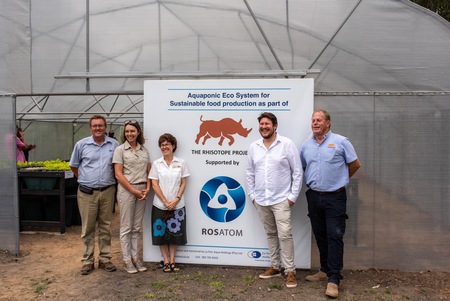.jpeg)
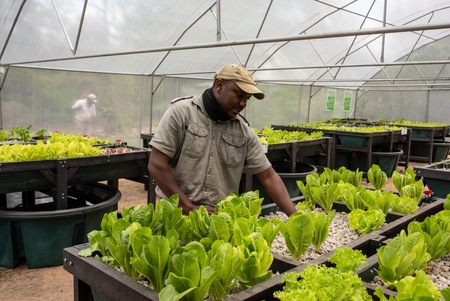.jpeg)
Scientifically, Phase 1 of the Rhisotope Project demonstrated that radioisotopes deposited into the horn of the rhino, remain in the horn and do not move back into the animal. This demonstrates that the project will be safe for the animals, marking a very key milestone in the project. Phase 2 of the innovative project is planned to commence in January 2022.
“The Rhisotope Project has reached the first major milestone in being able to demonstrate to the regulator, the university’s animal ethics committee, and stakeholders in the welfare of rhinos that it is completely safe for the animals”, said Dr. James Larkin, Director of Radiation and Health Physics Unit at the University of the Witwatersrand and the founder of the Project.
However, making scientific discoveries that can deal with a problem and save the species is only part of the deal. Another important job is to engage with the locals to help raise awareness of the issue. It is common knowledge that that no species can be protected unless local communities and stakeholders play an active part of this process.
Therefore, as part of the Rhisotope Project, a community outreach programme is vital. The founding sponsor of the Rhisotope project, Rosatom launched the aquaponics unit, as well as the education programme in the Eastern Cape. The Aquaponic system was installed by leading aquaponic speacialists La Pieus Aqua. The local company is renowned for installing systems at schools, community projects and sites around Africa. The CEO of LPA is an 18-year-old ecology activist Rikalize Reinecke, who started her own aquaculture and aquaponics farm in 2014.
“Aquaponics is the most innovative farming method of the new century. This system gives you the opportunity to process food in your backyard and generate an income. One system can feed a family of four to six people sustainably”, - said Ms. Reinecke.
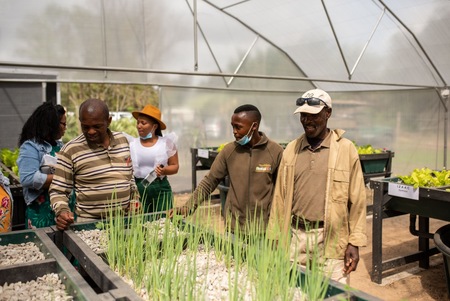.jpeg)
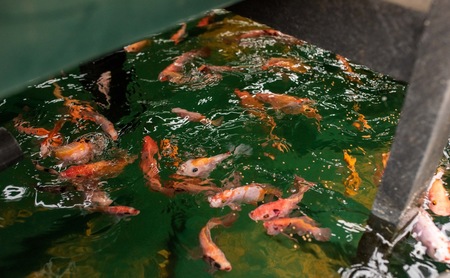.jpeg)
The aquaponics unit is now run by local volunteers in collaboration with The Amakhala Foundation which recently won the prestigious Rhodes University Community Engagement Partner of the Year Award. All produce from the greenhouse will go to feed the families of the local volunteers, supply healthy and nutritious vegetables to a local soup kitchen and orphanage, as well as sell fresh produce to local lodges to keep the system sustainable. The first harvest from the unit has already been sold to the nearest Safari Lodge and generated its first income. The programme is also meant to help to build and encourage entrepreneurial and business development opportunities for the volunteers.
Further to this, local school children will also benefit from the project. The benefits will take the form of presentations on the Rhisotope Project and why rhinos matter in their everyday lives. The informative lectures will be enhanced and supplemented by supplying the learners with educational support materials.
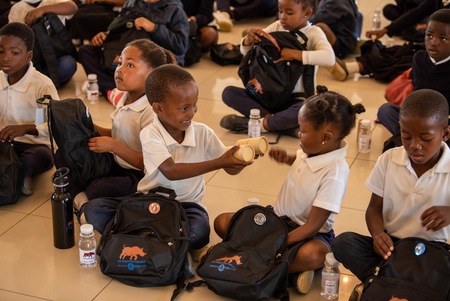.jpeg)
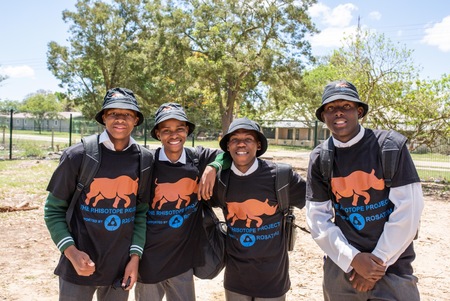.jpeg)
Rosatom Central and Southern Africa, a regional office of the Russian state energy corporation, is the key partner of the project. Its CEO, Ryan Collyer, is confident that this aquaponic unit is going to make a difference to the daily lives in this community. Mr. Collyer also pointed out that the development of aquaponics is key to food security in the long term. According to him, the aquaponics principle is based on the concept of sustainable development and environmental responsibility, which is directly in line with Rosatom’s core values.
About the Rhisotope Project:
The Rhino Project is an initiative between WITS University, top global nuclear scientists, researchers, South African rhino owners and the best wildlife veterinarians in the world to significantly reduce rhino poaching. In short, by placing radioactive material in rhino’s horn, we create an effective demand reduction and rhino protection tool. It is giant leap forward in the protection of this endangered species. If the appetite for horn lowers so will poaching, the two challenges are not mutually exclusive and are inextricably linked.
The purpose of the project is to create a lasting and effective means of significantly lowering the amount of rhino being poached and killed for their horns. These animals need us more than you know. Through this project, Rhino Project will provide an effective tool in the toolkit of rhino protection, innovation and the ability to evolve as the landscape changes is key.
With the international nuclear and radiological expertise brought by Rosatom to this project, it will make a significant contribution to saving and protecting rhino by reducing the desire for rhino horn, by both poachers and the end user, through the effective use of radioactive technologies currently available. This will enable on the anti-poaching teams to be more effective, as well as assisting international and South African law enforcement agencies track and trace the rhino horn trafficking channels by using current nuclear security capabilities in airports and harbours. Trafficked rhino horn is not an industry of its own, it has become another lucrative “commodity” for the biggest crime syndicates to benefit from. Even though the trade in rhino horn is illegal and banned internationally, there are many countries that drive the illicit sale of horn, countries like Vietnam, China, Cambodia, Croatia and North Korea to name a few.



.jpg)










